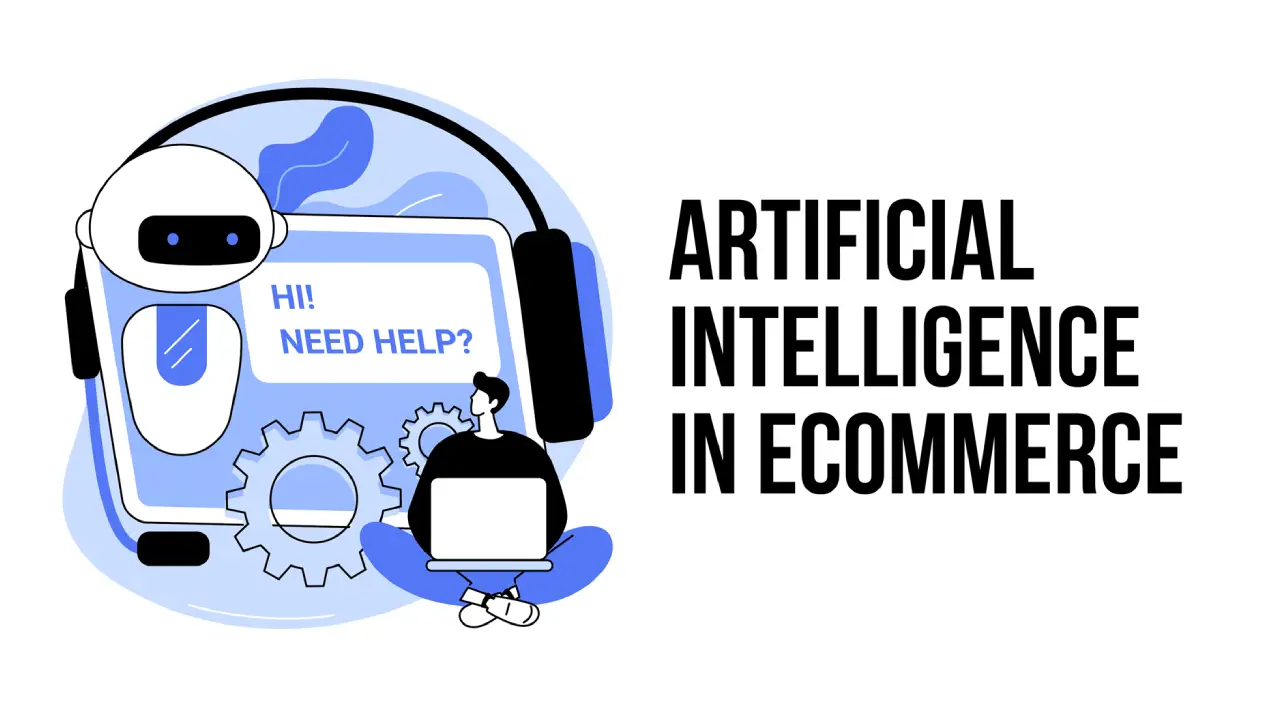Artificial intelligence technology, which was once only a wild narrative element in science fiction, is now an integral component
of every business’s everyday operation. AI stands for algorithms that observe and learn from human behaviour in order to
find behavioural patterns for the online retail sector.
Ever gotten a product recommendation email that was incredibly tailored to your interests? Or perhaps you spoke with a chatbot
for two minutes to find a pair of pants in your size? If the response is affirmative, you have had e-commerce AI experience.
Powerful technology is already beginning to appear across the purchasing process in today’s world, from voice searches to
hyper-targeted retargeting to product suggestions and online sales assistants.
1. More Targeted Marketing & Advertising:

Customization is a key goal for the retailers polled, but just 15% claim to have completely integrated it across all channels.
Have a one-on-one interaction with your consumers and stand out from the crowd with a distinctive message.
The employment of advanced techniques to identify content by the user is now possible because to developments in
artificial intelligence and machine learning. Big data analysis of sales and other customer interactions enables you
to take advantage of your consumers’ requirements and communicate in a way that best appeals to them.
More targeted ads and marketing: Big data analysis of sales and other customer interactions enables you to take advantage of your
consumers’ requirements and stand out from the crowd.
2. Optimize Search:
AI brings powerful capabilities to search optimization, enabling search engines to understand user intent better, deliver
personalized results, and continuously improve search relevance and user satisfaction. By leveraging AI in search, businesses
can enhance user experiences, increase engagement, and drive more meaningful interactions with their content and services.
3. Contextual Search and AI Recommendations Engine:
For precise and accurate results, contextual search is a potent AI function that works on both the web and mobile devices.
The accuracy of the study is increased by the focused search, which employs an artificial intelligence engine to look for
outside data like the day of the week, season, topic order, etc.
In many respects, the AI Recommendation engine is an extension of the advertising search and makes specific suggestions for
the best items based on external data such as history, cookie data that may include prior research, purchase history, and other
things.

Context based search and AI recommendation for precise and accurate results.
AI recommendation engine makes specific suggestions based on external data such as history, cookies, etc
4. Increased Loyalty and Retention:
Returning customers are more profitable than new ones. They tend to spend more and act as your most effective marketers by
telling their friends, family, and followers about your products.
As well as serving personalized product recommendations that get increasingly accurate the more a customer shops with you,
AI can predict consumer trends and learn more about each shopper. As a result, you’re able to automatically deliver unique
experiences for each individual customer based on their preferred channels and interaction with you.
Increased loyalty and retention: With better and personalized product recommendations that get increasingly accurate the more a
customer shops with you, AI can predict consumer trends and help you deliver unique experiences for each customer.
5. Chatbots serving as game changer along with smart logistics:

Chatbots are useful in customer retention too. AI-enabled sales representatives may automate responses to common queries and
provide current clients with real-time purchase information. This removes any resistance they might have to making another
purchase and produces enjoyable experiences that entice them to return for more.
Using real-time data from sensors, RFID tags, and other sources is at the heart of smart logistics, also known as intelligent
logistics, which aims to manage inventories and more accurately predict demand. In order to provide better forecasts for their
supply chain and logistics tasks, machine learning systems get wiser over time.
Responding to client queries and providing them real-time purchase info, reduces resistance leading to more purchases and
enjoyable experiences.
6. Efficient sales process:
By gathering information about your consumers, automating follow-up queries about abandoned carts, and more, using AI may help you establish a more effective sales process.
By encouraging clients to interact with chatbots for straightforward inquiries, you may assist in moving them down the funnel.

7. Dynamic Pricing:
Big data can do big things, like predict your future prices and adjust current prices using inventory, supply and demand estimations.

8. Better Customer Service:
Chatbots can save over $8 billion (annually) by 2022. It’s time to let the bots do their job and save time and money when you can.
9. Predictive Marketing:
Know what your customers want better than your competitors and show them exactly that. AI can identify patterns and trends that
are difficult or impossible for humans to detect, helping businesses make data-driven decisions and improve marketing strategies.

10. Smart Logistics:
Using real-time data from sensors, RFID tags and other sources manage to inventory and more accurately predict demands.
Overall, AI’s importance across all verticals lies in its ability to transform how businesses operate, empowering them with
valuable insights, improved customer experiences, and operational efficiency, ultimately leading to sustainable growth and success
in the dynamic business landscape.

